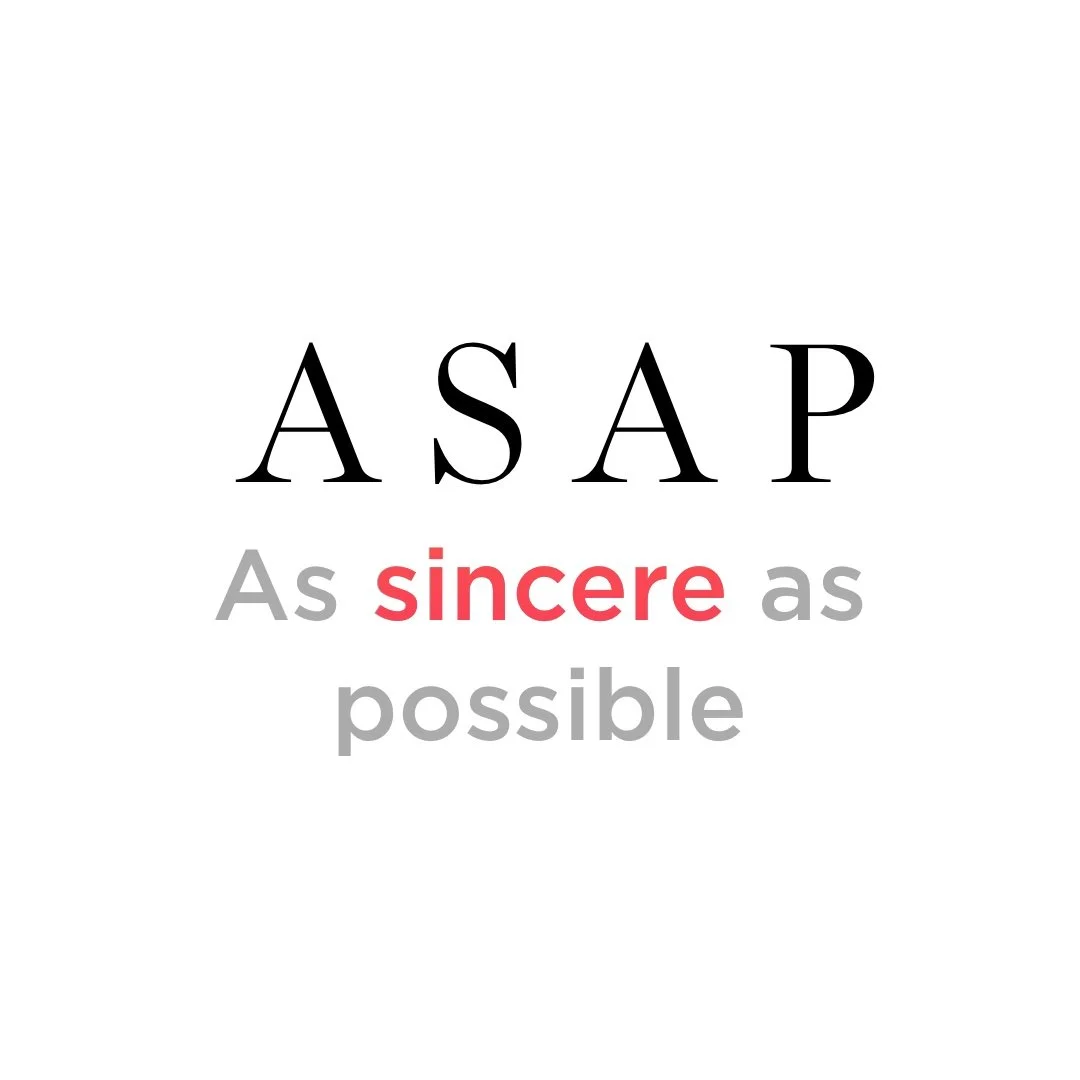ASAP - as sincere as possible?
Perhaps "ASAP" isn’t about doing things at lightning speed—it’s about giving yourself the space to be as sincere and authentic as possible. It’s about finding the courage to speak honestly and kindly.
Or does that authenticity slip away as you rush on by in a day packed with meeting? And what does that mean for the quality of your relationships—and trust?
Sincere feedback is a powerful gift we share with one another. After a workshop, on your way to the next meeting—with a quick “that went really well, didn’t it?”—and just like that, you’re off…. That fleeting exchange hardly contributes to our personal development.
But there was something I truly wanted to share with you…
Do you have time to talk about it later?
Would you like to hear my reflections on your facilitation style?
I believe it’s vital for your growth to hear this—and I say it with genuine care. You matter.
So, how can we practise being more sincere?
I am deeply inspired by Don Miguel Ruiz, who writes about the ancient wisdom of the Toltecs in his book The Four Agreements. He shows us how to live more freely and honestly—and to choose liberating principles for ourselves.
When it comes to sincerity, he advises us to “be pristine with your words”. Sincerity comes when we say what we mean, and mean what we say.
Being genuine also means having the courage to engage in those difficult conversations. What is the conversation you’ve been avoiding, and with whom? What is it really about? I meet leaders at every level, and regardless of title or experience, it often feels challenging to initiate these discussions. Perhaps we fear causing hurt—or losing something valuable.
It becomes easier if we start simply by reaching out—let’s talk about the need to talk, rather than immediately diving into the hard conversation.
It also helps to check in with our own feelings before engaging with someone else. Maybe you’re unhappy with the collaboration or performance, but an honest, caring conversation requires that you respect the other person as fully legitimate.
Further inspiration from Ruiz: “Don’t take it personally”—no one is out to hurt you; they’re speaking from their own reality. It can be easier to be sincere when you remind yourself that what you’re expressing is simply your perspective.
In my own experience, when I’m on the receiving end of a difficult message, I must work hard not to take it personally. Ultimately, I am the one who permits myself to be hurt; it’s not that the other person intends to hurt me. So I reflect: what is it within me that allows this hurt?
From Wisdom to Action – What Can You Do?
If you’re inspired to reflect on sincerity in your own life, I invite you to consider these questions:
How do I balance the pace of life with the time needed for sincere conversations with those who truly matter in my life and work?
Which conversations am I avoiding—and with whom? What might be underlying in my own feelings?
What might change if I embraced the principle of “don’t take anything personally—no one is trying to hurt you”?
If you’re curious about having a conversation with me about sincerity and navigating difficult discussions, please feel free to get in touch.
PS: This article is an example of how I blend ancient wisdom traditions with the expertise inherent in the ontological approach to coaching in my practice.

